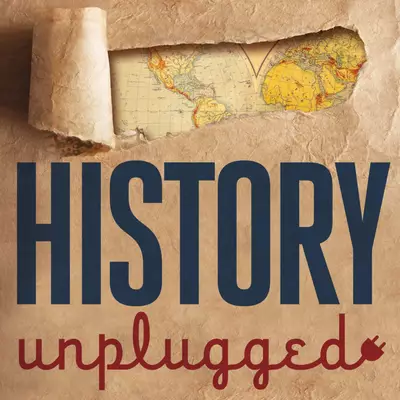Listen on Your Favorite App
Lincolnomics: How President Lincoln Constructed the Great American Economy
May 25, 2021
00:00
39:49
Listen on Your Favorite App
Abraham Lincoln’s view of the right to fulfill one’s economic destiny was at the core of his own beliefs—but some believe that he thought no one could climb that ladder without strong federal support. Some of his most enduring plans came to him before the Civil War, visions of a country linked by railroads running ocean to ocean, canals turning small towns into bustling cities, public works bridging farmers to market.
Today’s guest John F. Wasik, author of “Lincolnomics” tracks Lincoln from his time in the 1830s as a young Illinois state legislator pushing for internal improvements; through his work as a lawyer representing the Illinois Central Railroad in the 1840s; to his presidential fight for the Transcontinental Railroad; and his support of land-grant colleges that educated a nation. To Lincoln, infrastructure meant not only the roads, bridges, and canals he shepherded as a lawyer and a public servant, but also much more.
These brick-and-mortar developments were essential to how the nation could lift citizens above poverty and its isolating origins. Lincoln paved the way for Eisenhower’s interstate highways and FDR’s social amenities.
We discuss:
⋅ Lincoln’s championing of the Transcontinential Railroad and pivotal public works preceding it, including the Illinois Central Railroad and the Illinois & Michigan Canal;
⋅ How infrastructure both hindered and enabled the Confederate and Lincoln-led Union
Armies during the Civil War;
⋅ Lincoln’s support for land-grant colleges, the foundation for today’s public universities across the country; and
⋅ Lincoln’s true dedication to infrastructure, among them the sketch of a town he surveyed, and a design he created and patented.
Today’s guest John F. Wasik, author of “Lincolnomics” tracks Lincoln from his time in the 1830s as a young Illinois state legislator pushing for internal improvements; through his work as a lawyer representing the Illinois Central Railroad in the 1840s; to his presidential fight for the Transcontinental Railroad; and his support of land-grant colleges that educated a nation. To Lincoln, infrastructure meant not only the roads, bridges, and canals he shepherded as a lawyer and a public servant, but also much more.
These brick-and-mortar developments were essential to how the nation could lift citizens above poverty and its isolating origins. Lincoln paved the way for Eisenhower’s interstate highways and FDR’s social amenities.
We discuss:
⋅ Lincoln’s championing of the Transcontinential Railroad and pivotal public works preceding it, including the Illinois Central Railroad and the Illinois & Michigan Canal;
⋅ How infrastructure both hindered and enabled the Confederate and Lincoln-led Union
Armies during the Civil War;
⋅ Lincoln’s support for land-grant colleges, the foundation for today’s public universities across the country; and
⋅ Lincoln’s true dedication to infrastructure, among them the sketch of a town he surveyed, and a design he created and patented.
See omnystudio.com/listener for privacy information.
More Episodes
See all episodes
Meet Your Host

Scott Rank is the host of the History Unplugged Podcast and a PhD in history who specialized in the Ottoman Empire and modern Turkey. Before going down the academic route he worked as a journalist in Istanbul. He has written 12 history books on topics ranging from lost Bronze Age civilizations to the Age of Discovery. Some of his books include The Age of Illumination: Science, Technology, and Reason in the Middle Ages and History’s 9 Most Insane Rulers.. Learn more about him by going to scottrankphd.com.
